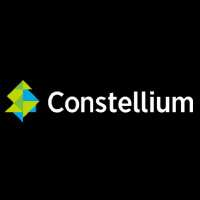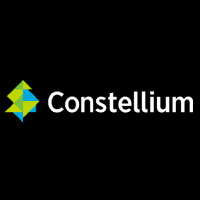
Constellium SE
NYSE:CSTM


Utilize notes to systematically review your investment decisions. By reflecting on past outcomes, you can discern effective strategies and identify those that underperformed. This continuous feedback loop enables you to adapt and refine your approach, optimizing for future success.
Each note serves as a learning point, offering insights into your decision-making processes. Over time, you'll accumulate a personalized database of knowledge, enhancing your ability to make informed decisions quickly and effectively.
With a comprehensive record of your investment history at your fingertips, you can compare current opportunities against past experiences. This not only bolsters your confidence but also ensures that each decision is grounded in a well-documented rationale.
Do you really want to delete this note?
This action cannot be undone.
This alert will be permanently deleted.
Bankruptcy Probability
Constellium SE's probability of bankruptcy is hidden . The solvency score is hidden .
We take all the information about a company's solvency (such as how easily a company can pay interest on its outstanding debt, how much cash it has, the amount of debt, and more) and use it to estimate the probability of bankruptcy.
Solvency Ratios
Solvency Ratios Comparison
Constellium SE Competitors

| Country | Company | Market Cap | D/E | D/A |
Interest Coverage |
Altman Z-Score |
Quick Ratio |
Current Ratio |
Cash Ratio |
||
|---|---|---|---|---|---|---|---|---|---|---|---|
| FR |

|
Constellium SE
NYSE:CSTM
|
3.1B USD |
Loading...
|
Loading...
|
Loading...
|
Loading...
|
Loading...
|
Loading...
|
Loading...
|
|
| CN |
A
|
Aluminum Corp of China Ltd
OTC:ALMMF
|
48.1B USD |
Loading...
|
Loading...
|
Loading...
|
Loading...
|
Loading...
|
Loading...
|
Loading...
|
|
| CN |
C
|
China Hongqiao Group Ltd
HKEX:1378
|
324.5B HKD |
Loading...
|
Loading...
|
Loading...
|
Loading...
|
Loading...
|
Loading...
|
Loading...
|
|
| CN |

|
Aluminum Corporation of China Ltd
SSE:601600
|
218.2B CNY |
Loading...
|
Loading...
|
Loading...
|
Loading...
|
Loading...
|
Loading...
|
Loading...
|
|
| IN |

|
Hindalco Industries Ltd
NSE:HINDALCO
|
2.1T INR |
Loading...
|
Loading...
|
Loading...
|
Loading...
|
Loading...
|
Loading...
|
Loading...
|
|
| NO |

|
Norsk Hydro ASA
OSE:NHY
|
169.1B NOK |
Loading...
|
Loading...
|
Loading...
|
Loading...
|
Loading...
|
Loading...
|
Loading...
|
|
| CN |

|
Yunnan Aluminium Co Ltd
SZSE:000807
|
111.1B CNY |
Loading...
|
Loading...
|
Loading...
|
Loading...
|
Loading...
|
Loading...
|
Loading...
|
|
| MY |

|
Press Metal Aluminium Holdings Bhd
KLSE:PMETAL
|
62.3B MYR |
Loading...
|
Loading...
|
Loading...
|
Loading...
|
Loading...
|
Loading...
|
Loading...
|
|
| US |

|
Alcoa Corp
NYSE:AA
|
15.1B USD |
Loading...
|
Loading...
|
Loading...
|
Loading...
|
Loading...
|
Loading...
|
Loading...
|
|
| CN |

|
Tianshan Aluminum Group Co Ltd
SZSE:002532
|
83.7B CNY |
Loading...
|
Loading...
|
Loading...
|
Loading...
|
Loading...
|
Loading...
|
Loading...
|
|
| CN |

|
Shandong Nanshan Aluminium Co Ltd
SSE:600219
|
77.2B CNY |
Loading...
|
Loading...
|
Loading...
|
Loading...
|
Loading...
|
Loading...
|
Loading...
|
Constellium SE's probability of bankruptcy is hidden .
The probability of bankruptcy is estimated using credit risk models that assess its financial health, debt levels, interest coverage, and other solvency indicators.
As of the latest report, Constellium SE has total debt of 2B EUR. This includes both short-term (0 EUR) and long-term (2B EUR) debt.
You can find a full breakdown on its Balance Sheet.








